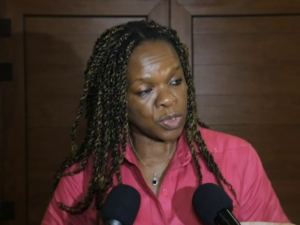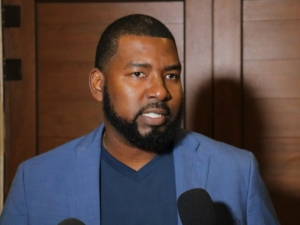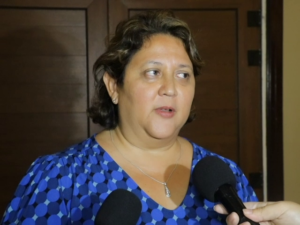UNICEF and Key Partners Discuss Child Protection
Today, protecting vulnerable children in potentially risky situations was what representatives of UNICEF and the Ministries of Human Development and Health paid keen attention to. It was part of a validation session for a national preparatory exercise, along with PAHO, and relevant ministries of government. It’s all a prelude to a global ministerial meeting scheduled to take place in Bogota, Columbia, in November. Today, the relevant parties who met told the media that today’s forum was to bring the key groups together at the policy level with a commitment to end violence against children. UNICEF’s Representative in Belize, Alison Parker, says parenting is one of the key issues where emphasis needs to be given, while the Ministry of Health’s Doctor Melissa Diaz-Musa explained that access to free medical services for children was another area of concern. For the Ministry of Human Development’s representative, Dylan Williams, ensuring that there are adequate resources to provide adequate care for these children is where they play a role.

Alison Parker
Alison Parker, Country Representative, UNICEF
“For Belize the data shows that ages one to four have the highest level of physical violence in Belize, so we’re looking at physical violence, what’s driving that, what’s causing that. So universal access for parents and caregivers’ support because we have advanced significantly on legislation. We have the Domestic Violence Act, etc, but then what support do we need to give parents and caregivers in order to ensure that children can grow up in a safe and loving environment.”

Dylan Williams
Dylan Williams, Dir., Policy & Planning, Ministry of Human Dev.
“Part of what we recently found out in terms of a child protection systems evaluation that we have is that we’ve been able to do certain things good as it relates to our response. And so that response has been a multi sectoral response from at least the key agencies. The Ministry of Human Development, the courts, we have the police, and of course the Ministry of Health in terms of health services. So we’ve been able to provide a response in response to any issues that children may face and so we’ve been able to do that. However, part of the challenge is that we recognize that even with a strong response, we are lacking in terms of a comprehensive prevention approach. Which really should allow us to not in the long run, have these issues happening in terms of having to have a strong response.”

Melissa Diaz-Musa
Dr. Melissa Diaz-Musa, Dir., Public Health & Wellness, Ministry of Health & Wellness
“When it comes to the health perspectives, areas like removal of fees at the public health facilities, ensuring good vaccination opportunities. The vaccine uptake reduces Children’s illnesses and diseases, improving and integrating mental health care in prenatal care. All these things are very important because violence and children. It’s multi-factorial, so it’s not one ministry that will lead and make that change. We’ve got to continue to work together, so in regards to the social and economic issues or what we call the social determinants. These things, if we work towards reducing these things will ensure that we do reduce violence against children.”







Facebook Comments